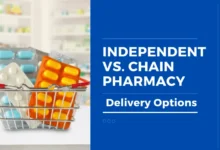What Are Some Group Therapy Activities During Addiction Treatment?

Key Takeaways
- Group therapy is an essential part of addiction recovery, fostering connection and shared learning.
- Activities in group therapy build trust, improve communication, and encourage personal growth.
- Participating in group therapy helps individuals develop skills for long-term sobriety.
Introduction
You can overcome addiction with the help of others. Group therapy helps addiction treatment succeed by bringing together people who support each other through their healing.
A secure and supportive group setting helps people learn recovery skills more effectively through practice. Participants develop better trust in others and challenge management abilities through structured group exercises that provide peer support. This section will explore the importance of group therapy alongside its essential routine activities that ensure its success.
Why is Group Therapy Important in Addiction Treatment?
Group therapy connects you with people who understand addiction battles because they face them too. Group membership helps you overcome addiction by preventing feelings of isolation and stagnation.
Key Benefits of Group Therapy:
- Community Building: Participants feel less alone, knowing others share similar experiences.
- Accountability: Group settings encourage individuals to stay committed to their recovery goals.
- Learning Opportunities: Hearing different perspectives and strategies helps participants discover new approaches to recovery.
Providing a supportive space for growth, group therapy is a cornerstone of addiction treatment.
Common Group Therapy Activities in Addiction Recovery
1. Icebreaker Activities
Group sessions present initial challenges for people who join for the first time. Initial exercises allow individuals to relax while establishing their initial relationships.
Examples of Icebreaker Activities:
- Sharing favorite hobbies or fun facts about themselves.
- Playing “Two Truths and a Lie” to spark conversations.
- Creating a personal timeline of significant life events.
Activities like these can help participants ease into the group setting while building rapport.
2. Role-Playing Scenarios
Using role-play techniques, we can learn how to deal with recovery-related situations through realistic practice. Through scenario practice, participants learn to handle difficulties without any real-world risks.
Examples of Role-Playing Scenarios:
- Handling peer pressure to use substances.
- Managing cravings in social situations.
- Resolving conflicts with family or friends.
This activity builds confidence and equips participants with practical coping strategies.
3. Art and Creative Expression
Art activities help participants comprehend their inner traumas without discussing their experiences. Creative activities enable participants to heal themselves without needing to speak.
Examples of Art Therapy Activities:
- Painting or drawing to express emotions.
- Creating a collage that represents recovery goals.
- Writing poems or stories about their journey.
These activities can help individuals to tap into their emotions and find new ways to express themselves.
4. Mindfulness and Relaxation Exercises
Stress and anxiety become major obstacles during the period of addiction recovery for people. In mindfulness activities, participants build their ability to remain present and take control of their emotional responses.
Examples of Mindfulness Exercises:
- Guided meditations to promote relaxation.
- Deep breathing techniques for stress relief.
- Gratitude journaling to focus on positive aspects of life.
Practicing mindfulness helps individuals stay grounded and resilient in their recovery journey.
5. Sharing Personal Stories
Group therapy is most effective when members share their personal life stories with each other. By sharing their life challenges and achievements, members create opportunities for everyone to build understanding and compassion.
Examples of Story-Sharing Activities:
- Discussing a significant moment in their addiction or recovery journey.
- Reflecting on lessons learned from challenges.
- Setting and sharing recovery goals with the group.
Hearing others’ stories can be inspiring and provide valuable insights for everyone involved.
6. Problem-Solving Workshops
Those who are recovering from addiction must develop practical solutions to everyday problems. Participants learn group problem-solving methods through workshops which help them discover practical solutions to common challenges.
Examples of Workshop Topics:
- Identifying and managing triggers.
- Creating healthy daily routines.
- Strengthening relationships with loved ones.
These collaborative activities empower participants to take charge of their recovery.
Benefits of Group Therapy Activities in Recovery
Participating in addiction group therapy provides numerous benefits for individuals in recovery:
- Building Trust and Communication Skills: Activities encourage openness and honesty, strengthening relationships within the group.
- Encouraging Self-Reflection: Creative and discussion-based exercises promote personal insight and growth.
- Reinforcing Coping Strategies: Role-playing and problem-solving activities prepare participants for real-life challenges.
Individuals develop the skills and support networks needed for lasting recovery by engaging in these activities.
Conclusion
People find healing through group therapy because it serves as a setting for both social connection and developmental progress throughout addiction recovery programs. Through group therapy activities, members build trust while learning new abilities and receiving support during their journey to overcome addiction.
If you or someone you know is ready to take the next step toward healing, help is available. Call Virtue Recovery Houston at 725-777-5685 today to learn more about our group therapy programs and how they can support your recovery journey.
FAQs
What Are Group Therapy Activities?
These structured exercises foster connection, communication, and personal growth in a group setting.
What Types of Activities Are Used in Group Therapy?
Typical activities include role-playing, mindfulness exercises, art therapy, and storytelling.
Why Are Group Therapy Activities Important in Recovery?
They help participants build trust, share experiences, and develop skills for managing addiction.
Where Can I Find Group Therapy for Addiction Recovery?
Virtue Recovery Houston offers professional group therapy programs. Call 725-777-5685 for more information.






